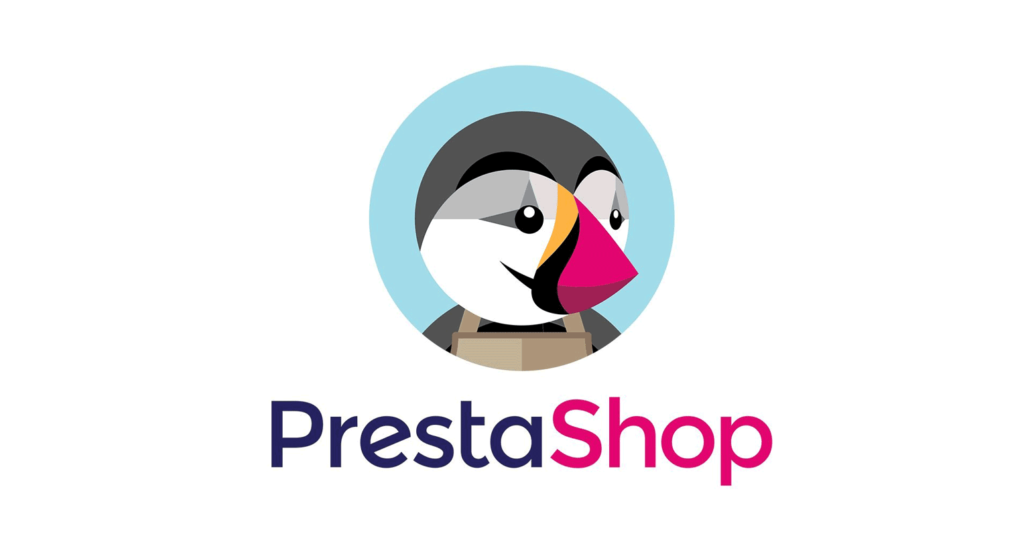Table of Contents
When it comes to establishing a robust online presence, integrating the right ecommerce platform with WordPress can significantly enhance the functionality and scalability of your website. Several leading ecommerce solutions seamlessly integrate with WordPress, offering a myriad of features to facilitate a smooth and efficient online shopping experience.
WooCommerce stands out as the most popular and widely-used option, empowering users with extensive customization options, a user-friendly interface, and a vast ecosystem of plugins. Additionally, platforms like Shopify and BigCommerce offer a hosted approach, ensuring reliable performance and security while simplifying the setup process. Ecwid and PrestaShop also offer outstanding integration with WordPress. Read this article until the end to select the ecommerce solution that aligns seamlessly with your goals and vision.
1. WooCommerce
2. Shopify
3. BigCommerce
4. Ecwid
5. PrestaShop
Overview of the Best eCommerce Platforms for WordPress
How to Choose the Best eCommerce Platforms for WordPress
Pros & Cons of the Best eCommerce Platforms for WordPress
What to Watch Out For
Pro Tips
Recap
1. WooCommerce
9.8/10
WooCommerce, a widely acclaimed WordPress ecommerce plugin, offers a cost-free solution for crafting fully customizable online stores enriched with diverse extensions and themes. Boasting over 5 million active installations, it stands as the foremost choice you can consider if you’re seeking the potent features and flexibility of WordPress.
- • Integrates seamlessly with WordPress
- • Offers extensive customization options
- • Provides a wide range of plugins and extensions
- • Benefits from robust community support
- • Costs effectively for small businesses
- • Involves a learning curve for beginners
- • Limits support for non-WordPress websites
- • Requires additional plugins for some advanced features
- • Faces scalability challenges for large enterprises
- • Raises security concerns with third-party plugins
WooCommerce is a WordPress plugin that transforms a WordPress website into a fully functional ecommerce platform. It empowers you to effortlessly set up online stores, manage products, handle transactions, and customize your storefronts with ease. As an open-source solution, WooCommerce offers flexibility and scalability, allowing you to leverage its features.
It seamlessly integrates with WordPress, providing a familiar environment for you, and supports a wide range of extensions for additional functionalities. WooCommerce continues to gain popularity for its user-friendly interface, extensive community support, and adaptability to diverse business needs within the WordPress ecosystem.
MORE >>> OpenCart Ecommerce Platform Review
2. Shopify
9.7/10
Shopify, an all-encompassing ecommerce site builder, presents a coding-free approach to establishing professional online stores. Its seamless integration with WordPress through the Shopify Buy Button or Shopify eCommerce Plugin makes it an ideal option whether you’re a startup business or high-income generating business owner, providing an array of payment gateways, marketing tools, and robust customer support.
- • Simplifies setup and usage
- • Expands functionality through an extensive app ecosystem
- • Ensures reliable hosting and security
- • Enhances user experience with a user-friendly interface
- • Imposes transaction fees on some plans
- • Limits customization options
- • Requires monthly subscription costs
- • Relies heavily on third-party apps for certain features
Shopify is an ecommerce platform that enables you to create online stores and sell products. It provides a user-friendly interface for setting up and managing the entire ecommerce process, from product listing to order fulfillment.
Shopify offers a range of customizable templates, making it accessible for your business size. The platform handles aspects like payment processing, inventory management, and shipping logistics, simplifying the overall ecommerce experience. Additionally, Shopify supports third-party app integrations, allowing you to extend functionality based on your specific needs. Overall, it’s a convenient solution you can leverage if you’re seeking a straightforward and scalable way to establish and run an online store.
3. BigCommerce
9.4/10
BigCommerce, designed for medium to large enterprises, delivers advanced features and scalability. Linked with WordPress via the BigCommerce WordPress Plugin, it excels in SEO, analytics, and multi-channel selling, making it suitable for your venture if it requires a resilient and adaptable ecommerce platform.
- • Facilitates streamlined scalability
- • Ensures robust performance
- • Incorporates extensive built-in features
- • Provides responsive customer support
- • Involves a learning curve for beginners
- • Imposes potentially higher pricing
- • Presents a limited app marketplace compared to competitors
- • Features design customization constraints
BigCommerce empowers you to create and manage online stores efficiently. It provides a user-friendly interface with a wide array of customizable templates, facilitating the creation of visually appealing and functional websites. BigCommerce is popular for its scalability, allowing you to expand seamlessly.
The software integrates seamlessly with popular payment gateways and offers advanced features such as multi-channel selling and extensive analytics tools. Additionally, the platform prioritizes mobile responsiveness and provides a secure environment for online transactions, making it a suitable choice for a comprehensive and flexible ecommerce solution.
4. Ecwid
9.3/10
Ecwid, a cost-effective platform, facilitates sales on various channels, including WordPress, with its Ecommerce Shopping Cart plugin. With a free plan accommodating up to 10 products and various paid plans offering expanded features, Ecwid appeals to you if you’re aiming for multi-platform sales.
- • Simplifies online store integration
- • Provides multi-channel selling capabilities
- • Offers a free plan with basic features
- • Supports various payment gateways
- • Ensures mobile-responsive design
- • Limits advanced features on the free plan
- • Imposes transaction fees on lower-tier plans
- • Restricts customization options
- • Presents potential challenges with customer support
Ecwid allows you to seamlessly integrate your online store with your existing website or social media platforms. This cloud-based platform is famous for its user-friendly interface, allowing you to effortlessly set up and manage your online storefronts. Ecwid supports various payment gateways, provides mobile responsiveness, and facilitates global selling by offering multilingual and multicurrency support. Its notable feature is the ability to embed the store across different online channels, offering flexibility and convenience for businesses looking to establish an online presence with minimal technical hurdles.
5. PrestaShop
9.0/10
PrestaShop, an open-source ecommerce platform, offers complete control over online stores through customizable addons and themes. Integration with WordPress is achievable through the PrestaShop Integration plugin, making it an attractive choice for businesses desiring a free and flexible ecommerce solution with extensive customization options.
- • Streamlines e-commerce setup
- • Offers extensive customization options
- • Support robust community support
- • Features multilingual and multicurrency support
- • Boast comprehensive product management
- • Requires steeper learning curve
- • Suffers limited native features
- • Requires regular updates
- • Is potential for resource-intensive for larger stores
- • Imposes integration challenges with some third-party plugins.
PrestaShop is an open-source ecommerce platform you can consider if you run a small to medium-sized online business. It offers a user-friendly interface that streamlines the process of setting up and managing an online store. With a strong focus on customization, PrestaShop provides an array of themes and modules, allowing you to tailor your websites to specific needs.
The platform supports multilingual and multicurrency functionalities, making it accessible to a global audience. While its extensive community support and regular updates contribute to its reliability, there is a learning curve that flocks with mastering its features, and larger stores can find it resource-intensive.
PRO TIPS >>> Best Ecommerce Platforms for Beginners
Overview of the Best eCommerce Platforms for WordPress
If you’re considering the best ecommerce platforms for WordPress, several standout options cater to diverse business needs. Leading the pack is WooCommerce, a free and highly customizable plugin boasting over 5 million active installations. It empowers you to create versatile online stores with an array of extensions and themes. Shopify, a comprehensive ecommerce site builder, facilitates professional online store creation without coding, making it ideal whether you’re a small or medium-sized business owner.
BigCommerce offers advanced features and scalability, supporting seamless integration with WordPress. Ecwid, a cost-effective platform, enables you to sell across multiple channels, including WordPress, providing a free plan for up to 10 products. Finally, PrestaShop, an open-source ecommerce solution, grants full control over online stores with customizable addons and themes, making it an excellent choice if you’re looking for a free and flexible platform.
How to Choose the Best eCommerce Platforms for WordPress
Choosing the best ecommerce platform for WordPress requires a thoughtful evaluation of your specific business needs and goals. Begin by assessing the scale and nature of your online store, considering factors such as product range, expected traffic, and customization requirements. Evaluate the user-friendliness of the platform, keeping in mind your technical expertise and the ease with which you can navigate and manage the system.
Compatibility with WordPress is crucial, ensuring a seamless integration that aligns with your website’s overall functionality. Additionally, weigh features like payment gateways, marketing tools, scalability, and support services platforms such as WooCommerce, Shopify, BigCommerce, Ecwid, and PrestaShop offer.
Pros & Cons of the Best eCommerce Platforms for WordPress
Pros
- Offer extensive plugin options
- Project customization flexibility
- Boast of large community support
- Feature seamless integration with WordPress
Cons
- Require learning curve for beginners
- Are potential for security concerns
- Suffer potential performance issues with heavy customization.
GET SMARTER >>> Is Shopify the Best Ecommerce Platform?
What to Watch Out For
When selecting the best ecommerce platform for WordPress, it’s important to watch out for factors such as scalability to accommodate business growth, ease of use for efficient management, integration capabilities with essential plugins and third-party tools, robust security features to safeguard customer data, and responsive customer support to address potential issues swiftly.
Additionally, consider the cost of the platform, including any hidden fees or transaction charges, to ensure it aligns with your budgetary constraints. Do thorough evaluation of user reviews and testimonials so as to gauge real-world experiences and seek a platform that seamlessly aligns with your business goals and technical requirements.
Pro Tips
- Assess your business needs and growth potential before choosing an ecommerce platform for WordPress.
- Dive deep into reviews, testimonials, and case studies to gather insights into the platform’s performance and user satisfaction.
- Take advantage of free trials or demos to personally experience the platform’s usability and features, ensuring it aligns with your requirements.
- Factor in not only initial costs but also long-term expenses, including scalability, additional plugin expenses, and transaction fees.
- Seek recommendations and engage with the platform’s community forums to gauge the level of support and troubleshooting assistance available.
Recap
In summary, when exploring the best ecommerce platforms for WordPress, several notable options stand out. WooCommerce, being a WordPress plugin, offers extensive customization and compatibility with the platform. Shopify, a popular choice, boasts user-friendly interfaces, a robust ecosystem, and seamless integration.
BigCommerce excels in scalability and performance, ideal for your growing venture. Ecwid stands out for its ease of use, providing a simple way to add an online store to an existing website. PrestaShop, an open-source solution, offers flexibility and a range of features.













